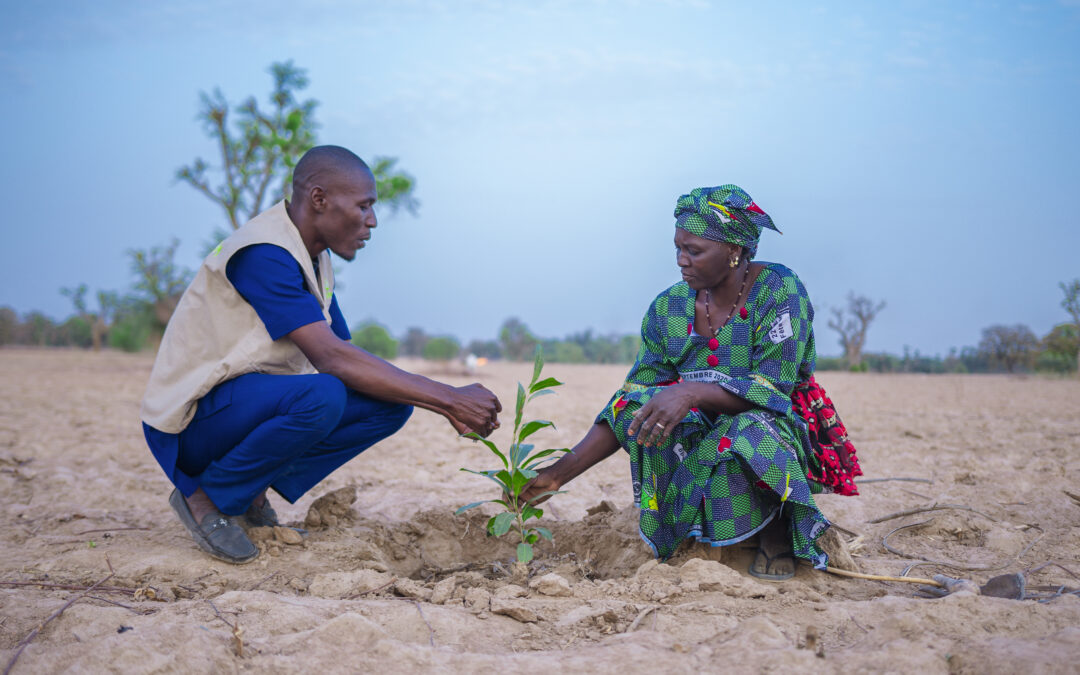By Regreening Africa – Oxfam Mali
Djelika Malle is a farmer in the village of Dintiola who relies heavily on the land and its resources for her livelihood. From a distance, you can see the trees she has planted, which are safe from animals and people who would otherwise reduce her efforts in maintaining her trees. These trees include the jujube tree (Ziziphus mauritiana), the nere tree (Parkia biglobosa), the tamarind tree, the African mahogany tree (Khaya senegalensis), the pourghere tree (Jatropha curcas), and the karité or shea tree (Vitellaria paradoxa).
Djelika Malle is elated with “her trees.”
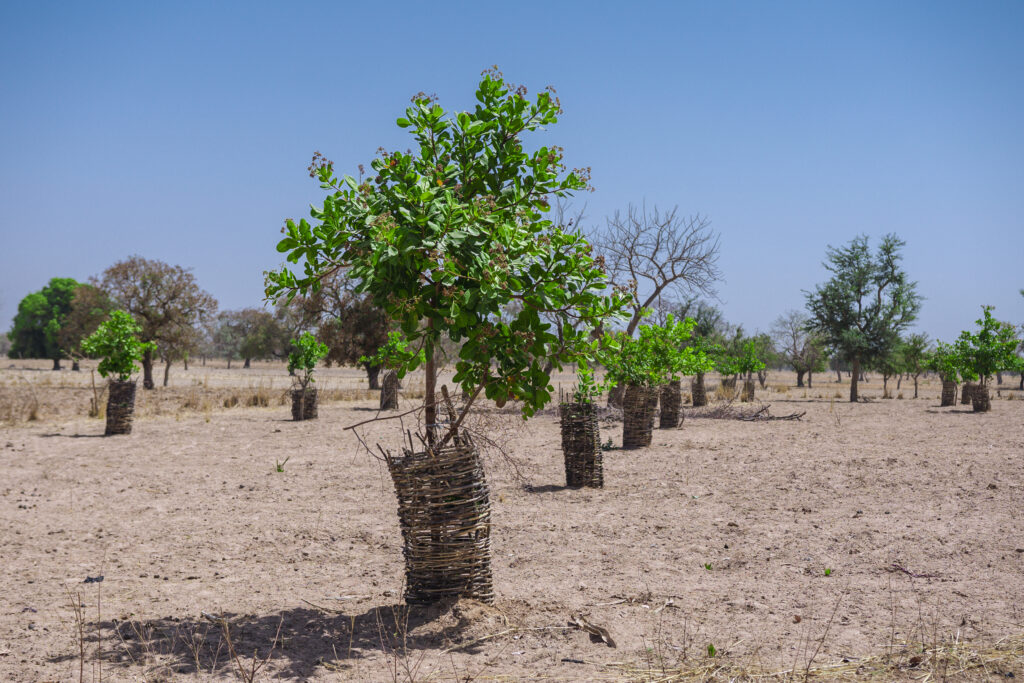 Farmers in Mali ensure that trees are protected from animals. Photo: Oxfam/Djafara Traoré
Farmers in Mali ensure that trees are protected from animals. Photo: Oxfam/Djafara Traoré
“I used to think there was no connection between trees and agricultural production. I recall the land being extremely dry and all the rainwater quickly drying up. My land was completely bare, with no grass growing on it, and my harvests were frequently very poor because I suffered numerous losses from the time of sowing.”
“Now that I understand the significance of trees in a field, I notice a distinct difference. For example, during the previous agricultural season, I noticed increased water retention. As a result, I had a bumper crop last year, resulting in a significant increase in income.”
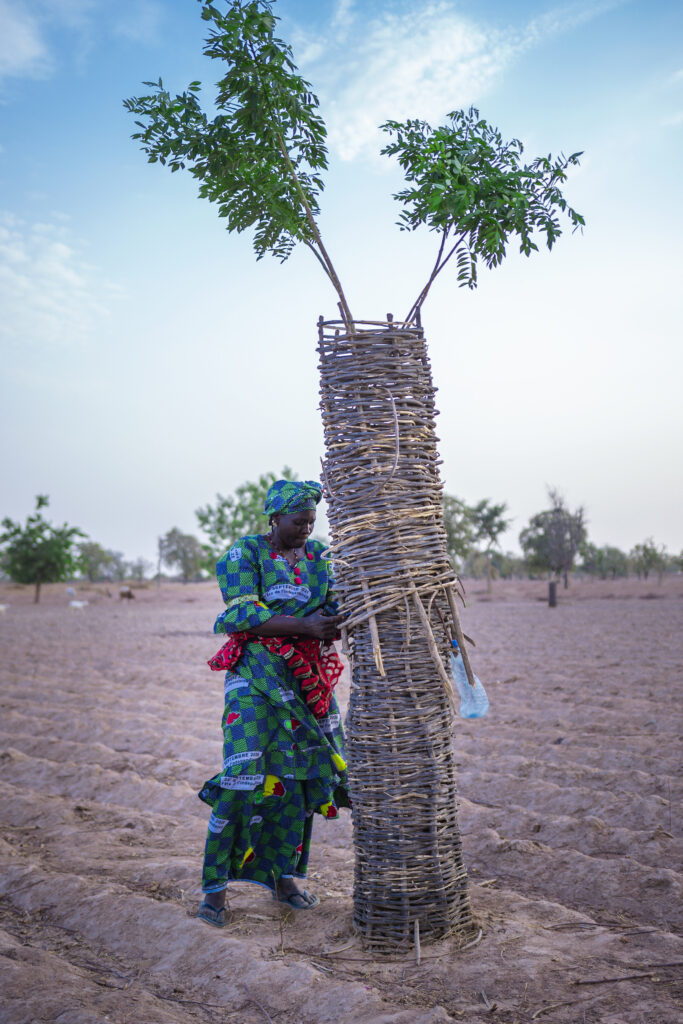 Djelika protects her trees with readily available materials in her community. Photo: Oxfam/Djafara Traoré
Djelika protects her trees with readily available materials in her community. Photo: Oxfam/Djafara Traoré
Crop productivity is low in West African Sahelian countries like Mali due to a variety of factors, including erratic rainfall distribution, which leads to heavy storm events and severe erosion. Erosion removes organic matter from the topsoil, reducing soil fertility and water retention capacity.
Previously, the trees Djelika planted did not survive due to poor practices such as improper planting and inadequate watering. But, thanks to Regreening Africa, she has learned how to plant trees and, more importantly, how to care for them once they are planted.
The practices employed are intended to prevent soil erosion, conserve limited water resources, and restore soil health. At the same time, they provide rural populations with an alternative source of food and nutritional security.
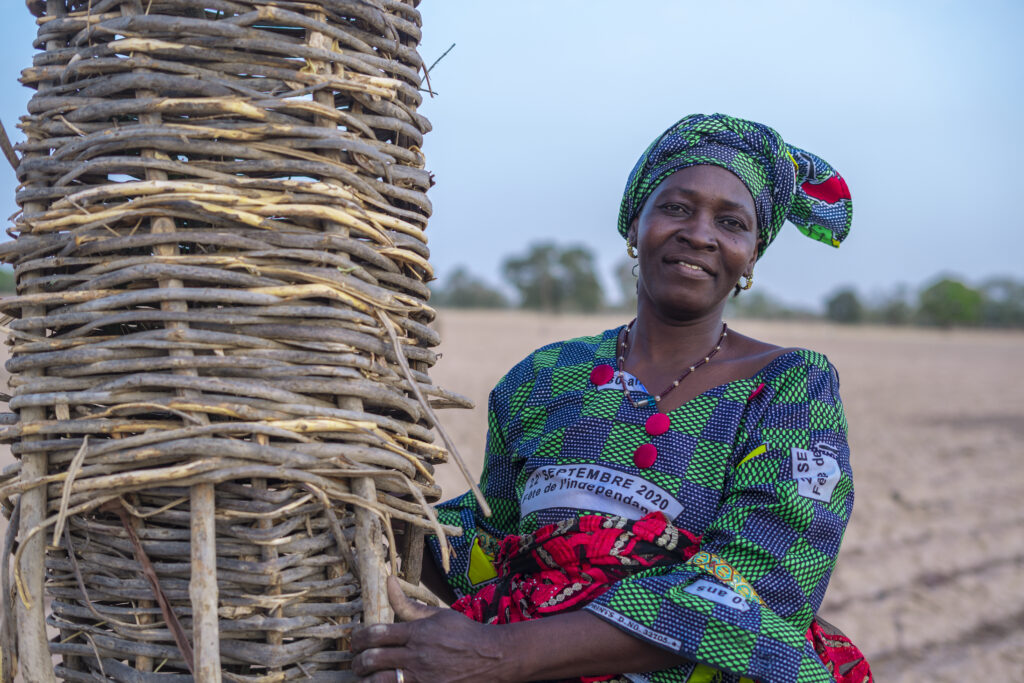 Djelika at work on her farm. Photo: Oxfam/Djafara Traoré
Djelika at work on her farm. Photo: Oxfam/Djafara Traoré
Djelika has currently planted trees on three hectares of land, and she cares for them daily. She has accomplished a lot in a community where women have limited access to land and cannot choose which species to plant on their plots.
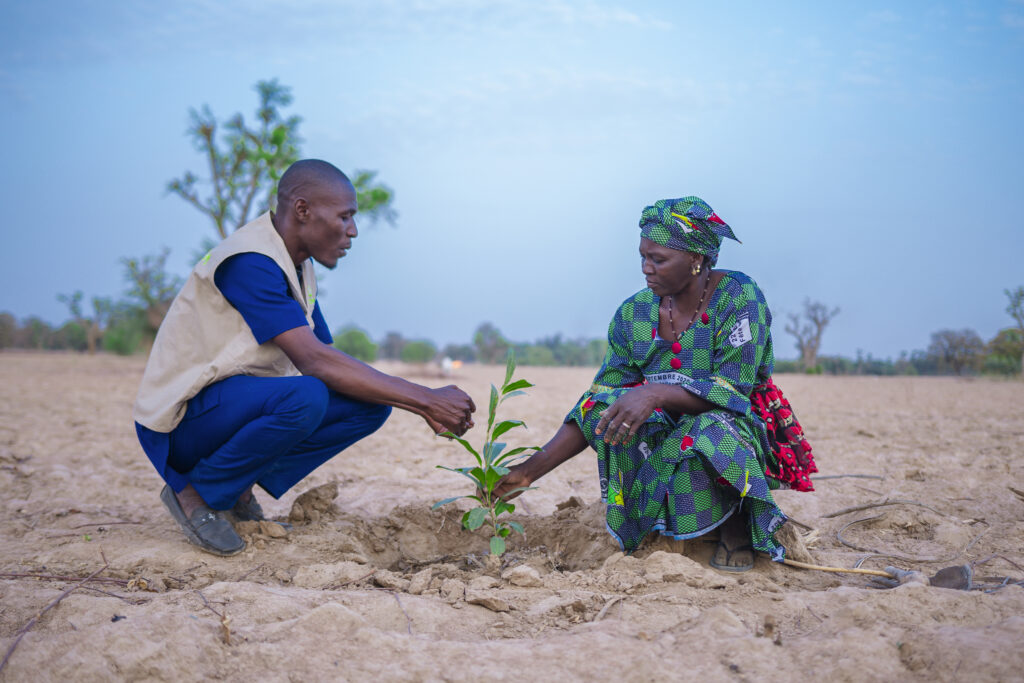 Karim Mallé, senior project assistant for Oxfam Mali, with Djélika Mallé on her farm. Photo: Oxfam/Djafara Traoré
Karim Mallé, senior project assistant for Oxfam Mali, with Djélika Mallé on her farm. Photo: Oxfam/Djafara Traoré
Djelika planted the shea tree among other trees. Oxfam provided the shea nuts after extensive consultation, so it was not a random choice. Women are benefiting financially from these resources, and Oxfam also provides technical training in production and transformation processing, such as picking techniques, drying, processing, and product conservation.
Regreening Africa is a five- and half-year programme (2017-2023) funded by the European Union that seeks to improve livelihoods, food and nutritional security, resilience to climate change, and ecosystem services through evergreen agriculture.
Oxfam is leading a consortium of partners in Mali to strengthen the practice and reach of natural regeneration and other Sahel-adapted agroforestry practices. Oxfam Mali employs ingenious local governance mechanisms to combat land degradation caused by large-scale bushfires and indiscriminate logging for timber, firewood, and charcoal. The overarching goal is to increase vegetation cover, biodiversity, soil fertility, agricultural and forage productivity, and, consequently, food security and household income. Additionally, the project will reduce soil erosion. Lastly, it will raise the value of non-timber forest products by creating value chains that give farmers more ways to make a living.
This story was produced with the financial support of the European Union. Its contents are the sole responsibility of Regreening Africa and do not necessarily reflect the views of the European Union.

